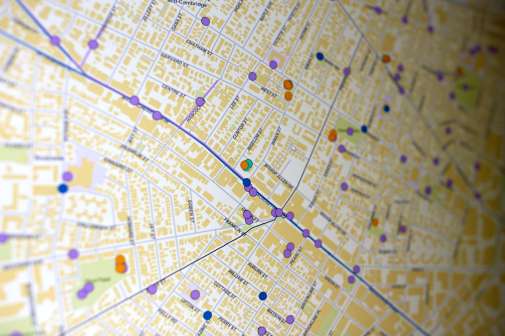Boston University develops smart city cloud platform
Researchers at Boston University will begin work on a new smart city cloud platform designed to streamline and strengthen multiple municipal functions that could become a model for large and small cities across the nation.
The project, called SCOPE: A Smart-city Cloud-based Open Platform & Ecosystem, will be created at Boston University’s Rafik B. Hariri Institute for Computing and Computational Science & Engineering with funding from the National Science Foundation. Research will focus on services in Boston and surrounding towns in Massachusetts at first, but it has the ability to help cities everywhere.
“Today’s cities are increasingly being challenged – to respond to diverse needs of their citizens, to prepare for major environmental changes, to improve urban quality of life, and to foster economic development,” said Azer Bestavros, director of the Hariri Institute and SCOPE’s principal investigator, in a statement. “So called ‘smart cities’ are closing these gaps through the use of technology to connect people with resources, to guide changes in collective behavior, and to foster innovation and economic growth.”
MassIT, the lead state agency for technology, is also taking part in the project.
Over the coming weeks and months, investigators with the project will develop and implement smart city services that aim to improve the quality of urban life. Some projects the university intends to study are transportation and mobility services to reduce traffic congestion, saving time and fuel, and reducing pollution; and energy and environmental services that will monitor and estimate greenhouse gas emissions.
Another research focus is public safety and security services for big-data-driven dispatch of police and traffic details, snow removal, coordinated public works scheduling and municipal repairs.
There will also be tools to manage city assets by mining large amounts of data and crowd-sourced coordination of asset use, and social, institutional and behavioral tools that will enable the adoption of new services, such as incentive programs and community report cards that promote transparency and sustainability.
Once developed, these services will be offered through the Massachusetts Open Cloud, a new public cloud designed and implemented through the Massachusetts Green High Performance Computing Center (MGHPCC) and supported by the Massachusetts Technology Collaborative.
“The project complements our ongoing efforts in state government to use data to continually increase transparency and drive constituent engagement,” Bill Oates, the chief information officer for Massachusetts and former Boston CIO, said in the release. “I am excited about our partnership with the SCOPE team and look forward to the opportunities the Mass Open Cloud will create for leveraging public sector data in new ways. This important work will open doors for ongoing innovation in the delivery of services to constituents.”
SCOPE is a National Science Foundation Partnerships for Innovation (NSF PFI) project supported by over $1 million in funding from the NSF and its industry partners.
“The SCOPE project highlights the collaborative efforts between the state, industry and academia that help make Massachusetts the leading innovation state,” Massachusetts Gov. Deval Patrick said in the release. “Through our Massachusetts Big Data Initiative, we’ve made open government a priority, opening data sets across multiple state agencies, improving access by researchers and the public.”






